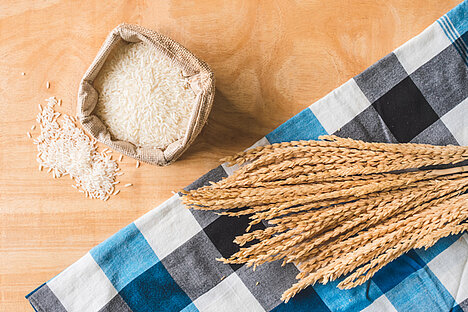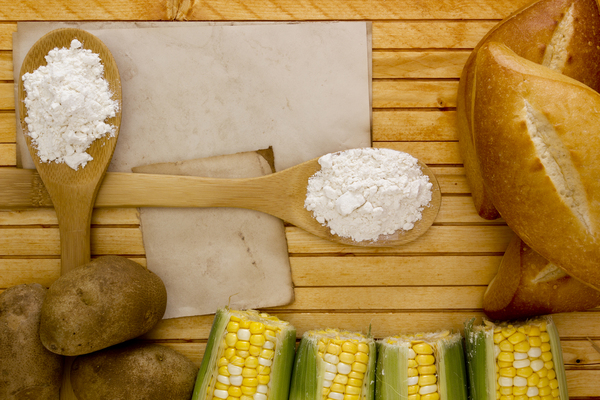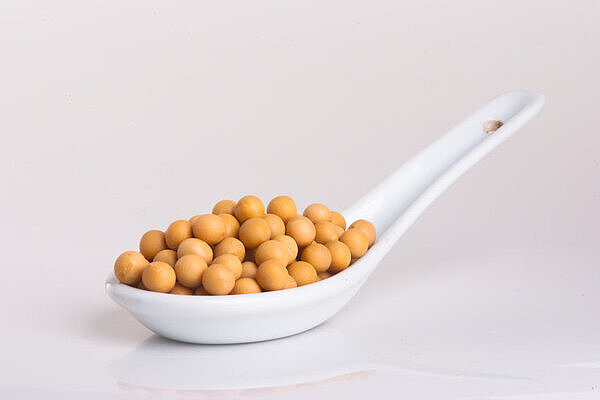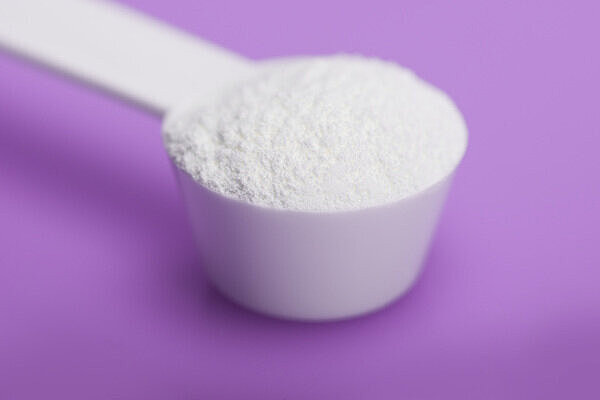Carbohydrates

What are carbohydrates?
Carbohydrates are organic compounds consisting of carbon, hydrogen and oxygen. They can be divided into simple and complex carbohydrates:
- Simple carbohydrates (monosaccharides) consist of one or two sugar molecules. Examples are glucose (grape sugar), fructose (fruit sugar) or lactose (milk sugar). They are mainly found in fruit, honey or dairy products.
- Complex carbohydrates (multiple sugars) consist of several sugar molecules that are linked together. Examples are starch or dietary fiber. They are mainly found in cereals, potatoes and pulses.
Simple carbohydrates can be quickly absorbed and utilized by the dog's body. They provide immediately available energy, which is also quickly used up again. Complex carbohydrates must first be broken down before they can be used as energy. They provide long-lasting energy and make your dog feel full for longer.
How much carbohydrate does your dog need?
The optimum amount of carbohydrates in dog food depends on various factors, such as your dog's age, activity level or state of health. As a general rule, the higher your dog's energy requirements, the more carbohydrates he can tolerate.
For a healthy adult dog, the recommended proportion of carbohydrates in food is around 20 to 40 percent. For a pregnant bitch, it should be at least 20 percent. It should not be too high for a puppy, otherwise it will grow too quickly and may develop joint problems.
If your dog suffers from certain diseases, such as liver or kidney problems or diabetes mellitus, it may be necessary to reduce or adjust the amount of carbohydrates in their diet.
What are the benefits of carbohydrates for your dog?
Carbohydrates have various positive effects on your dog's body:
- They provide energy for the muscles and brain
- They support digestion through fiber
- They promote the growth of beneficial intestinal bacteria through prebiotics
- They improve the taste of the food
What are the disadvantages of carbohydrates for your dog?
Carbohydrates can also have negative effects on your dog's body:
- They can lead to obesity if they are fed in excessive quantities
- They can cause digestive problems such as bloating or diarrhea
- They can trigger allergies or intolerances
- They can promote dental problems such as tooth decay
How can you choose the right carbohydrates for your dog?
Not all carbohydrates are created equal for your dog. You should therefore make sure that you choose high-quality carbohydrate sources that are easily digestible and rich in nutrients. Examples include wholegrain cereals, rice or sweet potatoes.
- that you feed carbohydrates in moderation and pay attention to your dog's total energy intake. A rule of thumb is: the more carbohydrates in the food, the less food your dog needs.
- that you feed a variety of carbohydrates and adapt them to your dog's needs. For example, you can try different types of grain or vegetables and see how your dog reacts to them.
- that you always prepare your dog's food fresh or buy a high-quality ready-made food. You should avoid giving your dog food that is unsuitable or harmful for him. Examples are chocolate, raisins or onions.
Carbohydrates are an important part of your dog's diet. They provide him with energy and support his health. However, you should make sure that you feed the right carbohydrates in the right quantities. That way you can give your dog a long and happy life.
Properties 10
Are you looking for other ingredients with a specific property?
Just click on them to find more.
If you notice any signs of hypersensitivity or poisoning in your dog, you should see your vet immediately. We are not a substitute for a vet, but we try to be as accurate as possible. Every dog reacts differently and we recommend you get a second opinion or consult your vet if in doubt.
Stay healthy and take good care of your four-legged friend!😊
Similar to Carbohydrates
Starch has several advantages for the production and quality of dog food. On the one hand, starch is relatively cheap and can be used as a filler to increase the energy content of the food....
Sugar is generally not dangerous for dogs. In small amounts, it can even have positive effects, for example: It improves mood and well-beingIt helps with regeneration after physical exertionIt...
Dietary fiber can promote a dog's intestinal health by stimulating bowel movements and preventing constipationincreasing the feeling of satiety and preventing obesityregulating blood sugar levels...
Glucose is a monosaccharide, i.e. a simple sugar. It consists of a ring of six carbon atoms to which hydrogen and oxygen atoms are attached. Glucose is the most common sugar in nature and is found...



